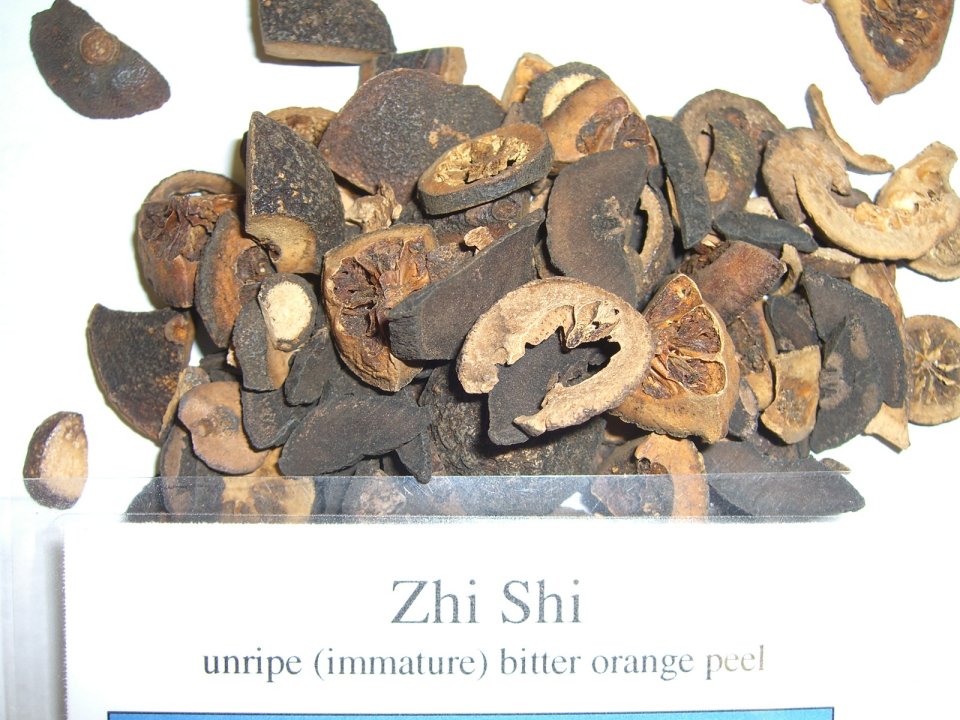Zhi Shi

  | Zhi Shi in TCM:Explore the properties of Zhi Shi according to Chinese
Nutrition and Traditional Chinese Medicine (TCM):
Factoids:
English Name: aurnatium immaturus, immature bitter orange, immature sweet orange
Pharmacuetical Name: Fructus Aurantii Immaturus
Properties: bitter, acrid, cool
Temperature: cool
Channels: LI, ST, SP
Flavors: bitter, pungent
Special Properties:
clears heat, clears damp, resolves phlegm, alleviates bi syndrome
Actions / Indications:
- Breaks up stagnant qi and resolves food accumulations
(indigestion with focal distension or gas, epigastric or abdominal pain
and distension, diarrhea, incomplete feeling, abdominal pain and constipation
with abdominal pain and fullness; dysenteric disorder or damp-heat diarrhea)
- Transforms phlegm; relieves focal distension (cholecystitis,
chest bi; angina; focal distension of chest and epigastrium due to phlegm
obstructing qi; recent use for coronary artery disease)
- Treats SP qi sinking (gastrectasis, gastroptosis,
rectal and urethral prolapse; recent use for treating hypotension)
- (cc: pregnancy)
- (cc: SP and ST qi deficiency)
Special Notes:
- Zhi Shi should not be used by itself since its qi dispersing function may consume qi.
- Zhi Shi is acidic and should be used with caution in patients suffering from peptic ulcer.
- Zhi Ke and Zhi Shi
are similar but not interchangeable. Zhi Shi is more suitable for severe
cases because it is more potent, while Zhi Ke is more gentle. Zhi ke
is ripe while Zhi Shi is unripened and stronger in action.
Disclaimer: In accordance with our terms of service, by using this web site you agree that none of the information found on this web site constitutes medical advice. You should always consult your doctor before trying any particular food or herbal remedy to treat disease.
Folk remedies presented on this site are designed to address specifc TCM diagnoses, and are not one-size-fits-all. If you would like to learn more about Traditional Chinese Medicine (TCM) and how it relates to Chinese Nutrition, you can book in a free call with a licensed professional. There is no obligation to purchase.
[CLICK HERE for your free INITIAL CONSULTATION] |

